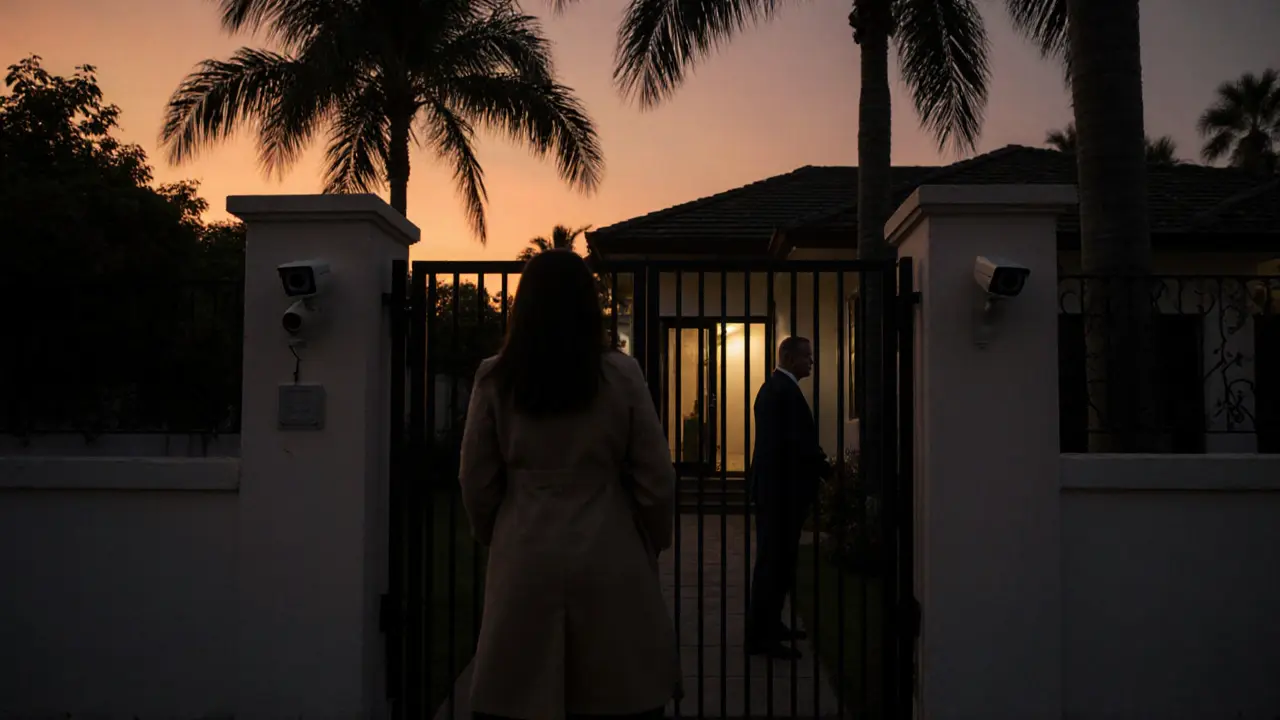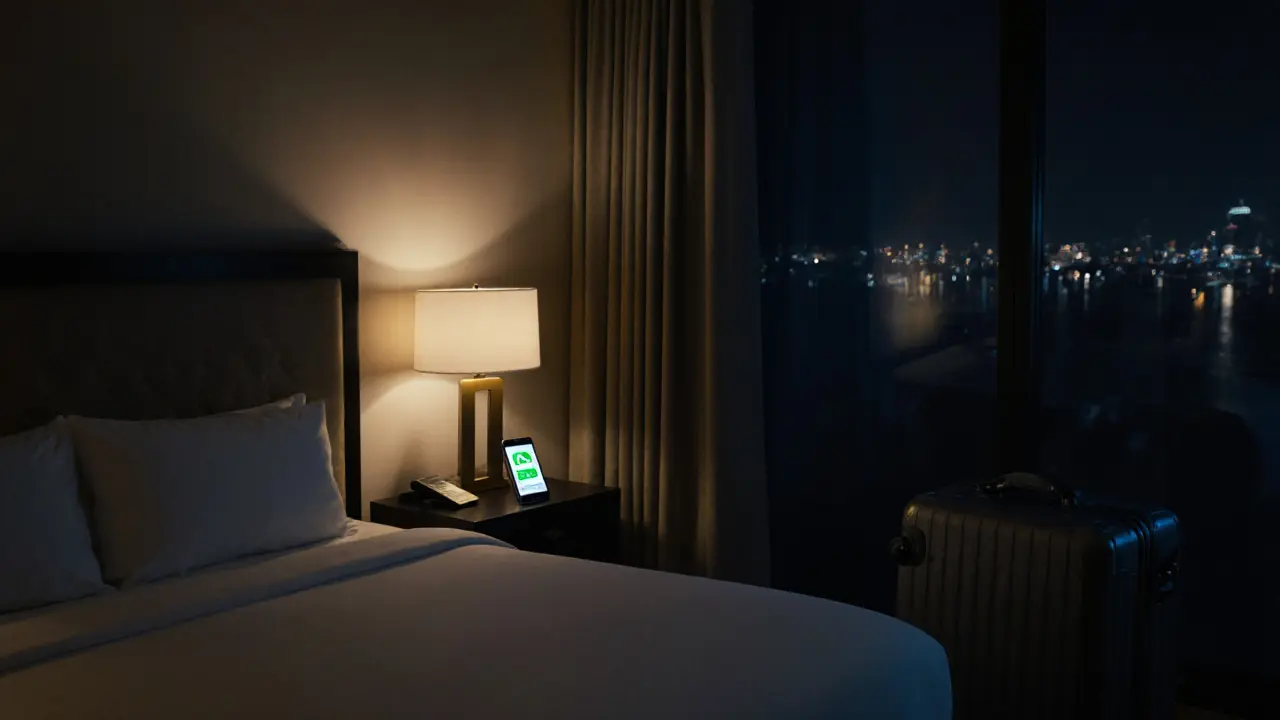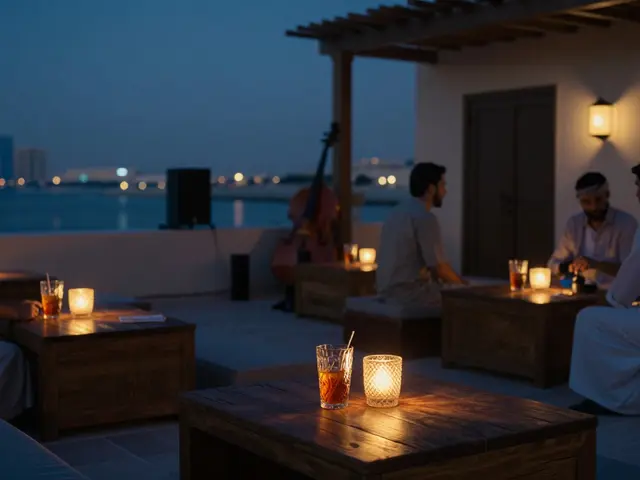Prostitution in the UAE isn’t something you’ll find advertised on billboards or listed on apps. It doesn’t exist openly - not because it’s rare, but because it’s illegal. Under UAE law, any exchange of sex for money is a criminal offense. Both the person offering and the person paying can face jail time, fines, or deportation. Yet, behind closed doors, in luxury apartments, private villas, and late-night hotel rooms, it happens. Not because people are reckless, but because demand exists and the system has gaps.
How It Actually Works
There’s no red-light district in Dubai or Abu Dhabi. No streetwalkers. No brothels with neon signs. Instead, the trade moves through encrypted messaging apps, private social circles, and word-of-mouth referrals. Many workers are foreign nationals on tourist or visit visas - often from Eastern Europe, Southeast Asia, or Africa - who arrived with promises of modeling, hospitality jobs, or companion services. When those jobs don’t materialize or pay enough, some turn to sex work as a last resort.
Clients are rarely tourists. Most are expats living in the UAE long-term - engineers, sales reps, consultants - men who’ve been here for years, feel isolated, and don’t know where else to turn. They don’t search Google for "prostitutes in Dubai." They ask a friend. They get a number from a bartender. They’re sent a WhatsApp message with a photo and a price.
Prices vary. A quick meeting in a hotel room might cost 1,500 AED. An evening with someone who speaks fluent English and has a private apartment can run 5,000 AED or more. The highest-end arrangements involve luxury apartments in Jumeirah or Palm Jumeirah, with strict vetting, no photos, and cash-only payments. No receipts. No records. No trace.
The Hidden Risks
Everyone involved is taking a risk. For the worker, the danger isn’t just legal - it’s physical. If a client turns violent, there’s no police to call. If they’re caught by immigration, they’re deported and blacklisted from re-entering the country for years. Many lose their passports. Some are held against their will. Human trafficking cases linked to sex work have been documented by the U.S. State Department and local NGOs, though official numbers are rarely released.
For clients, the risk is just as real. In 2023, a British expat was arrested after a police raid on a villa in Al Barsha. He was sentenced to six months in jail and deported. His employer found out. He lost his job. His family back home found out through social media. He’s now banned from every Gulf country.
Even the people who arrange these meetings - the "fixers" or "managers" - are at risk. They’re not organized crime bosses. Most are women who used to do the work themselves, now acting as intermediaries. They take a cut. They vet clients. They handle payments. But if the police get a tip, they’re the first ones arrested. In 2022, a Nigerian woman in Dubai was sentenced to two years for facilitating 17 encounters over eight months. She had no prior record. She just needed rent money.
Where It Happens - And Where It Doesn’t
There are no "secret hotspots" you can map. No alleyways. No bars with hidden back rooms. The idea of a "red zone" in Dubai is a myth. What exists are patterns - places where people with money and privacy gather, and where the right connections can lead to the right introductions.
Some of the most common locations include:
- High-end hotels in Dubai Marina and Jumeirah - especially those with long-term guests and discreet check-in policies
- Private residences in gated communities like Emirates Hills or Al Quoz
- Spas and massage parlors that offer "extra services" - though these are often fronts for other illegal activities
- Expats-only social groups on Telegram or WhatsApp - where requests are made indirectly, using coded language
What you won’t find: nightclubs, beach clubs, or bars. Even the most exclusive clubs in Dubai - like White Dubai or Level 43 - have zero tolerance. Bouncers are trained to spot suspicious behavior. Staff report anything unusual. Security cameras are everywhere. If you’re looking for a hookup at a club, you’re not going to find it. You’ll just get kicked out.

Why It’s So Hard to Stop
The UAE government doesn’t ignore this. Police conduct regular raids. Immigration runs spot checks on visa holders. Hotels are required to report suspicious guests. In 2024 alone, over 1,200 people were arrested for prostitution-related offenses - 78% were foreign nationals.
But enforcement isn’t the issue. The issue is demand. The UAE has over 1 million foreign workers - many of them women living alone, far from family, earning less than $1,000 a month. Some are trapped. Others see sex work as the only way to send money home. Meanwhile, the expat population includes thousands of men living in isolation, with no social support, no dating apps that work for them, and no cultural outlets to connect.
There’s no legal way to address this. No safe spaces. No harm reduction programs. No counseling for workers. No education for clients. The system punishes everyone involved, but doesn’t fix the root causes.
What Happens If You Get Caught
If you’re caught, here’s what you can expect:
- Immediate arrest - no warning, no negotiation
- Detention for up to 14 days while immigration investigates
- Deportation - automatic if you’re a foreign national
- A permanent ban from entering any GCC country
- Loss of employment - your employer will be notified
- Possible criminal record - even if you served time, it stays on file
For locals, the consequences are even worse. Emirati citizens caught in these situations face social stigma, family shame, and sometimes forced rehabilitation. There’s no public discussion. No support. Just silence.

The Real Cost
The price of prostitution in the UAE isn’t just jail time or deportation. It’s the loss of dignity. The broken trust. The fear that haunts people long after they leave the country. Workers who escape often end up in shelters in their home countries, ashamed to return home. Clients who get caught lose careers, relationships, and sometimes their freedom.
There’s no glamour here. No romance. No fantasy. Just a system that pushes people into darkness because no one’s willing to talk about why they got there in the first place.
What You Should Do Instead
If you’re lonely. If you’re isolated. If you’re looking for connection - there are better ways.
- Join expat meetups - there are hundreds in Dubai, from hiking groups to book clubs
- Use apps like Meetup or Bumble BFF - they’re designed for platonic connections
- Volunteer - organizations like Dubai Cares and the Red Crescent always need help
- Seek counseling - some clinics offer free mental health services to expats
It’s not easy. But it’s safer. And it doesn’t come with a prison sentence.
Is prostitution legal in the UAE?
No. Prostitution is illegal in all seven emirates. Both the person offering sex and the person paying for it can be arrested, fined, jailed, and deported. There are no exceptions, even for tourists.
Can I get arrested for just asking someone for sex in Dubai?
Yes. Police regularly conduct sting operations. If you message someone online offering money for sex, even if no meeting happens, you can be tracked and arrested. Digital evidence - texts, WhatsApp logs, payment screenshots - is enough for prosecution.
Are there any legal alternatives to prostitution in the UAE?
There are no legal sex services. But there are legal ways to meet people. Expats can join social clubs, attend cultural events, use dating apps like Hinge or Tinder, or volunteer. Many expat communities offer free mental health support and social events designed to reduce isolation.
What happens to women who are arrested for prostitution?
They are detained, interviewed by immigration, and usually deported within weeks. Many lose their passports and are banned from re-entering the UAE and other Gulf countries. Some are sent to shelters run by NGOs in their home countries. Very few receive legal aid or counseling.
Do hotels in Dubai allow prostitution?
No. Hotels are legally required to report suspicious activity. Staff are trained to recognize signs of prostitution. If a guest brings someone in who isn’t registered, security may call police. Many hotels now use AI systems to flag unusual check-in patterns - like same-guest arrivals at odd hours with no luggage.



